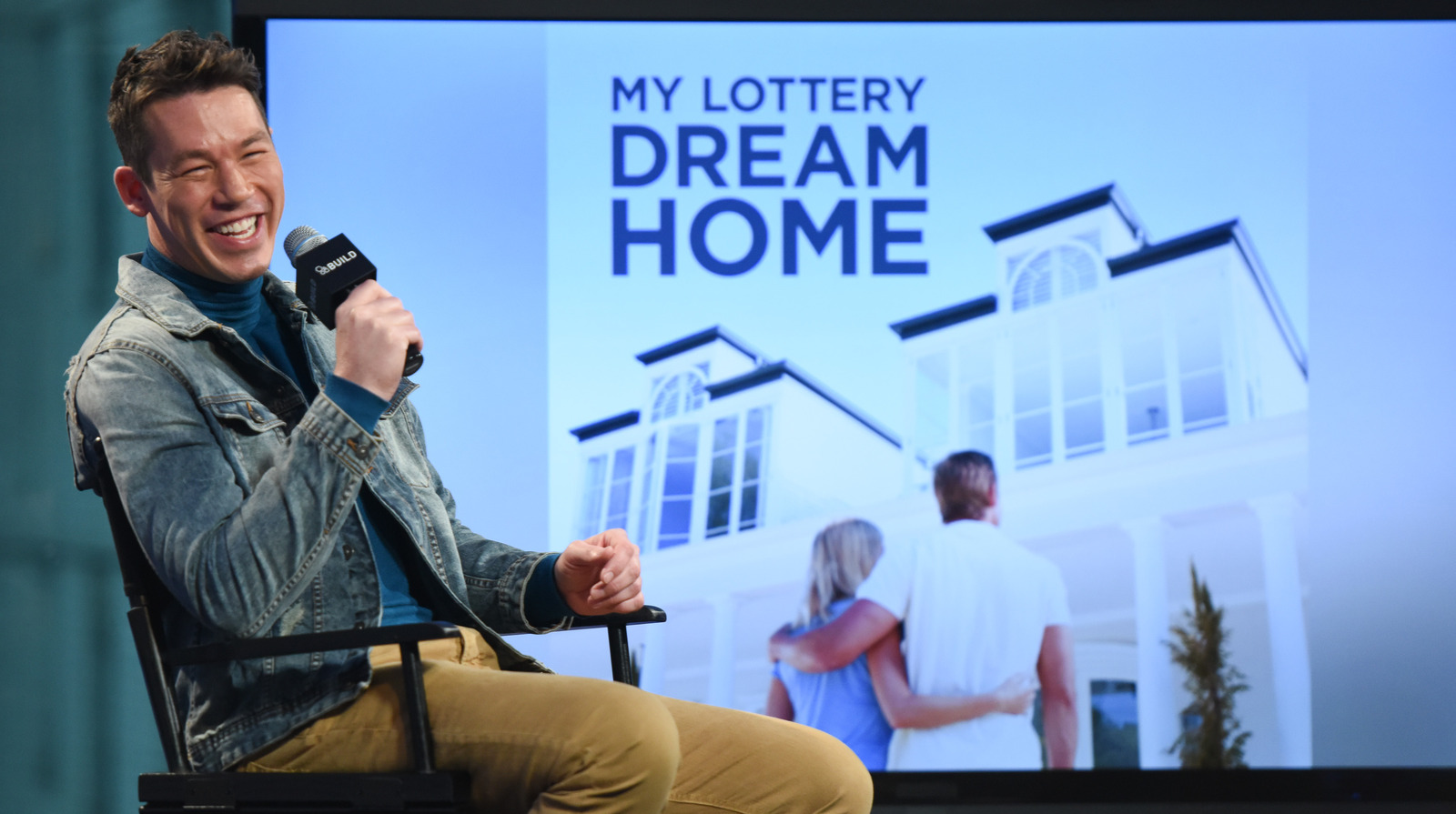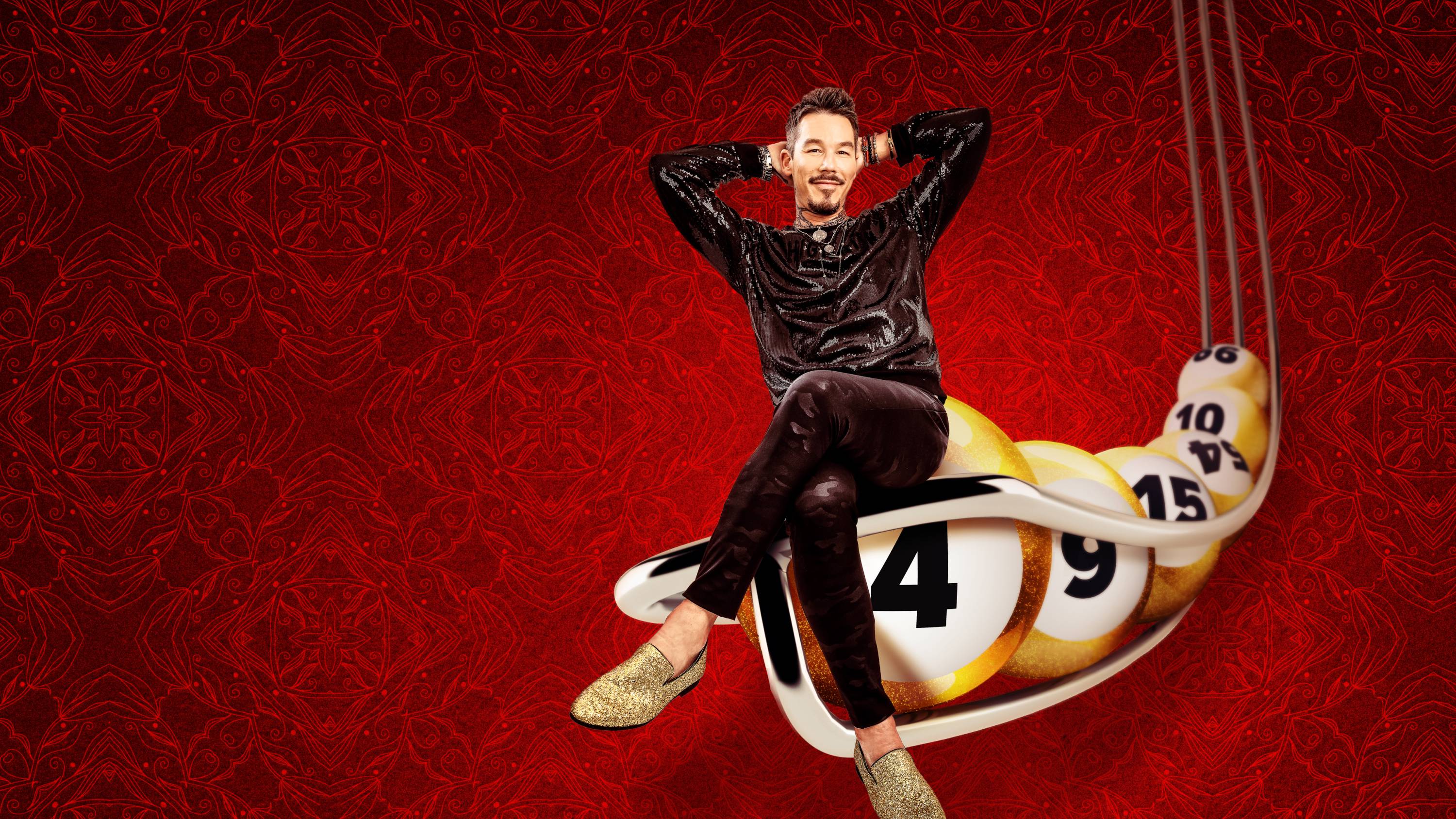Is My Lottery Dream Home Real Or Staged? Uncovering The Truth Behind The Show
Have you ever found yourself watching "My Lottery Dream Home" and wondered, "Is this for real, or is it all just a bit of a show?" That feeling, that little bit of doubt, is pretty common, you know. We see lottery winners, often with truly life-changing sums of money, looking for their perfect new place, and it seems almost too good to be true. So, naturally, the question pops up: how much of what we see on screen is genuine, and how much is, well, put together for the cameras?
It's a fair question, really. A lot of us are fascinated by reality television, but we also have a pretty good sense of when things might be a little tweaked for entertainment. When it comes to finding a new home after winning a huge jackpot, there's a certain magic to it, isn't there? We want to believe in the dream, but we also want to know if the process is, like, actually happening as it appears, or if there's some behind-the-scenes polish, so to speak.
This article aims to explore that very question, looking at the different elements of "My Lottery Dream Home" to figure out just how authentic it is. We'll talk about the winners themselves, the homes they look at, and the way the whole thing is put together for TV. You might be surprised by some of what goes into making these shows, and it could change how you watch them, in a way.
Table of Contents
- The Allure of Lottery Dreams and Reality TV
- Unpacking the "Real" in My Lottery Dream Home
- Behind the Scenes: What Goes Into Filming?
- Common Misconceptions and the Nuance of "Reality"
- What Does "My Text" Tell Us About Authenticity?
- Frequently Asked Questions About My Lottery Dream Home
- Bringing It All Together
The Allure of Lottery Dreams and Reality TV
Why We Love These Shows
There's something incredibly appealing about shows like "My Lottery Dream Home," isn't there? For many people, winning the lottery is a complete fantasy, a daydream they might entertain during a quiet moment. These shows, in a way, let us live that fantasy right alongside someone who actually achieved it. We get to see what it might be like to suddenly have the means to buy that incredible house, with all the features you've only ever imagined. It's a peek into a different kind of life, and that's pretty compelling, you know.
The appeal also comes from the human stories. Each episode introduces us to someone new, someone who was just like us until one lucky ticket changed everything. We hear about their journey, their plans, and their hopes for the future. It's a chance to connect with people who are experiencing something truly extraordinary, and that's a powerful draw for viewers, naturally.
The Question of Authenticity
But with that fascination comes a healthy dose of skepticism, too. Reality TV, generally speaking, has a reputation for not always being 100% "real." We've all heard stories about scenes being re-shot, conversations being prompted, or situations being set up for dramatic effect. So, when you see a lottery winner touring three vastly different homes and then making a quick decision, you might wonder: is that really how it goes down? Is that, like, what happens in real life?
This questioning isn't a bad thing. It shows that viewers are engaged and thinking critically about what they consume. People want to believe in the dream, but they also want to know if the dream they're seeing on screen is, at its core, a truthful representation. It's a balance between entertainment and genuine experience, and that's what we're going to explore here, in some respects.
Unpacking the "Real" in My Lottery Dream Home
Real Winners, Real Money, Sort Of
One of the biggest questions people have is about the lottery winners themselves. Are they actual lottery winners? The short answer is yes, they really are. The show works with people who have genuinely won a significant amount of money from a lottery. This isn't made up for television, which is pretty cool, honestly.
However, it's worth noting that the winnings shown might be the gross amount, before taxes and other deductions. The actual amount they have to spend on a house could be quite a bit less than the headline number. Also, sometimes the winners featured might have won their money a little while ago, not just yesterday. This gives them time to adjust, get their finances in order, and be ready to appear on a TV show, which can be a bit of a process, you know.
The Home Search Process: Scripted or Spontaneous?
The way the home search unfolds on screen can feel a bit quick, can't it? In real life, buying a house is usually a long, drawn-out affair with many showings and lots of paperwork. On the show, it seems like they pick three homes and make a decision pretty fast. This is where the "produced" aspect of reality TV comes into play, very much so.
The show's producers and David Bromstad likely work with the winners beforehand to narrow down their preferences and budget. They'll typically pre-select a few homes that fit the winners' criteria and are available for filming. So, while the winners are genuinely looking for a home, the selection of houses they see on TV is curated for the show. It's not a completely spontaneous, open-ended search, which is fair enough for television, really.
Are the Homes Actually Purchased?
This is another common point of curiosity. Do the lottery winners actually buy one of the houses they look at on the show? Often, yes, they do. The show's premise is that they are helping real lottery winners find and buy their dream home. However, sometimes the home they end up purchasing isn't one of the three featured on the episode. This can happen for various reasons, like a house going off the market, or the winners simply finding something else they like better after filming wraps up. It's a practical reality of real estate, you see.
The show focuses on the journey and the excitement of the search. While the final reveal of the chosen home is a big part of the episode, the core idea is to show the *process* of looking and dreaming, which is pretty compelling in itself, as a matter of fact.
David Bromstad's Role: Guide or Actor?
David Bromstad is the charming host who guides the winners through their home search. His personality is a huge part of the show's appeal. Is he genuinely helping them, or is he just playing a role? He is, in fact, a real designer and TV personality, and he does genuinely interact with the winners. His reactions and advice are often quite authentic, you know.
However, like any host on a produced show, he has a role to play. He helps move the narrative along, asks questions that prompt interesting responses, and generally keeps the energy up. He's a guide, but also a facilitator for the show's storytelling. So, he's not "acting" in the sense of a scripted drama, but he is certainly performing for the cameras, which is part of his job, basically.
Behind the Scenes: What Goes Into Filming?
The Production Timeline
Making a reality TV show takes time, a lot of it. From the moment a lottery winner agrees to be on the show to the final broadcast, many months can pass. There's coordination with the lottery winners, finding suitable homes, scheduling filming days, and then the extensive post-production process. It's not something that happens overnight, which is a key thing to remember, really.
This timeline means that the events shown in an episode might be condensed or presented out of their original sequence to fit the show's narrative. It's all about creating a cohesive and entertaining story for the viewer, and that requires careful planning and execution, naturally.
Why Some Scenes Might Feel "Staged"
When you watch, some moments might feel a bit set up, or "staged." This isn't necessarily because the show is trying to trick you. It's often because scenes are repeated for better camera angles, or conversations are prompted to ensure key information is shared clearly. For instance, if a winner says something important but the camera didn't quite catch it, they might be asked to say it again, in a way.
Also, the reactions of the winners might be a little heightened for the cameras. People know they are on TV, and they want to be engaging. So, while their excitement or disappointment is genuine, the way they express it might be a bit more pronounced than it would be if no cameras were around. It's just a part of being on television, as a matter of fact.
The Editing Room Magic
The real "magic" of any reality show happens in the editing room. Hours and hours of raw footage are trimmed, rearranged, and polished to create a 22-minute or 44-minute episode. This process shapes the story, builds suspense, and highlights the most interesting moments. It's where a lot of the "staged" feel can come from, without anything actually being fake, in some respects.
Editors choose what to show and what to leave out, and they can influence how viewers perceive events and people. They might emphasize a particular reaction or cut together different takes to create a smoother narrative flow. This is a standard practice in television production, and it's how they make sure the show is entertaining and easy to follow, you know.
Common Misconceptions and the Nuance of "Reality"
It's Entertainment First
A big thing to remember about "My Lottery Dream Home," and most reality TV, is that it's first and foremost a form of entertainment. While it features real people and real situations, the primary goal is to tell a compelling story that keeps viewers watching. This means that some aspects might be simplified, exaggerated, or condensed for dramatic effect. It's not a documentary, basically.
Understanding this helps manage expectations. If you go into it expecting a raw, unedited look at a real estate transaction, you might be disappointed. But if you view it as an entertaining show about people living out a dream, then it's pretty satisfying, honestly.
The Difference Between "Staged" and "Produced"
There's a key difference between something being "staged" and something being "produced." "Staged" often implies something is completely fake or fabricated. "Produced," on the other hand, means it's been carefully crafted, edited, and presented for television. "My Lottery Dream Home" is very much a produced show, which gives it its polished feel, you see.
The winners are real, their money is real, and their desire for a new home is real. The way that story is told, however, is shaped by the production team to make it engaging for a wide audience. It's a subtle but important distinction when we talk about the authenticity of reality television, very much so.
What Does "My Text" Tell Us About Authenticity?
Thinking about the public's interest in things, like the discussions on youth hockey rule changes or the annual "Play of the Year" contests in MyHockey Rankings, it's clear people really care about how things work behind the scenes, or how decisions get made. Just like those debates, there's a natural curiosity about what's genuine and what's manufactured in our entertainment, you know. The provided text talks about "the public has spoken" and how certain processes "created a great deal of concern and skepticism among various constituents." This reflects a general human tendency to question and to want to know the true story behind what we see.
The idea of "online forums to further your addiction" to talking hockey, and the warning that "these forums can get brutal," really highlights how passionate people are when they discuss things they care about. This passion, this desire for open discussion, translates directly to shows like "My Lottery Dream Home." People want to share their thoughts, voice their skepticism, and get to the bottom of whether what they're seeing is completely true or if there are layers to it, in a way. Just as folks manage their Microsoft accounts and settings, seeking clarity and control, viewers want a clear picture of the reality behind the show, to be honest.
So, when we ask "Is My Lottery Dream Home real or staged?", we're tapping into that same public interest in transparency and authenticity. It's about wanting to understand the process, to see if the outcome is truly organic, or if it's been shaped for a specific viewing experience. The debate around reality TV, much like the debates in other public forums, shows that people are looking for genuine connections and experiences, even in their entertainment, which is pretty cool, really.
Frequently Asked Questions About My Lottery Dream Home
Here are some common questions people ask about "My Lottery Dream Home":
Are the lottery winners on the show real?
Yes, the individuals featured on "My Lottery Dream Home" are actual lottery winners. They have genuinely won significant sums of money. The show connects with people who have experienced this life-changing event, which is pretty neat, you know.
Are the houses shown on My Lottery Dream Home actually purchased?
Most of the time, the winners do purchase one of the homes they view, or a home very similar to their preferences, after the show's filming wraps up. Sometimes, the specific house shown as the "chosen" one might not be the exact one they ultimately buy due to real estate market dynamics, but the intention to buy is real, in a way.
Does David Bromstad really help them find a home?
David Bromstad is certainly involved in the home search process. He meets with the winners, discusses their preferences, and guides them through the property tours. While the production team helps with the initial selection of homes to show, David plays a genuine role in presenting the options and interacting with the winners, very much so.
Bringing It All Together
So, is "My Lottery Dream Home" real or staged? The truth, as with most reality television, sits somewhere in the middle. The core elements – the lottery winners, their winnings, and their desire for a new home – are absolutely real. You can learn more about reality TV production on our site, which might give you a better sense of how these shows come together.
What you see on screen is a produced version of that reality. It's edited, condensed, and presented in a way that makes for compelling television. The show is designed to be entertaining and to allow viewers to share in the excitement of a life-changing event. It’s a carefully crafted experience, not a raw documentary, and that's perfectly fine for entertainment, you see. For more insights, you can also check out our home buying guides for tips on real-life property searches.

Is My Lottery Dream Home Real Or Scripted?

Stream My Lottery Dream Home | discovery+

My Lottery Dream Home episodes (TV Series 2015 - Now)